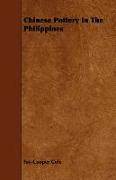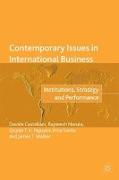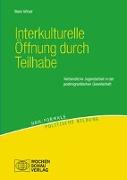Chinese Pottery in the Philippines
BücherAngebote / Angebote:
FIELD MUSEUM OF NATURAL HISTORY. PUBLICATION 162. ANTHROPOLOGICAL SERIES. VOL. XII, NO. I. CHINESE POTTERY IN THE PHILIPPINES BY FAY-COOPER COLE WITH POSTSCRIPT BY BERTHOL LAUFER The Robert F. Cummings Philippine Expedition GEORGE A. DORSEY Yurator, Department of Anthropology In the spring of 1906 Mr. Robert F. Cumrnings of this city expressed his intention of providing the Field Museum of Natural History with funds to defray the expenses of an extended series of Ethnological investigations in the Philippine Islands. Working under this liberal endowment the following expeditions have been in the field In 1906 Mr. S. C. Simms visited the Igorot of Benguet, Lepanto and Bontoc, and the Ifugao of Nueva Viscaya. During 1907-8 Mr. F. C. Cole worked among the Tinguian, Apayao and Kalinga tribes of Northern Luzon, and the Batak of Palawan. The late Dr. William Jones reached the Philippines in the fall of 1907 and proceeded to the Ilongot of the Upper Cagayan river Luzon. After residing a year in that district he was murdered by members of a hostile village. Following Dr. Jones death Mr. Simms returned to the Philippines, secured the material gathered by Dr. Jones and com- pleted the Igorot and Ifugao collections, visiting for this purpose the Mayayao and Amburayan Igorot, in addition to certain points touched on the first expedition. In the fall of 1909 Mr. Cole returned to the Islands and devoted nearly two years to the study of the pigmy blacks of Bataan province, the Bukidnon of North Central Mindanao, and the several tribes residing about the Gulf of Davao in Southern Mindanao. While the primary object of these expeditions was to gather museum collections, much time was given to the study of the mental and material culture, as well as of the language, folklore and anthropometry of the tribes visited. The results of these studies will appear from time to time in the Anthropological Series of this Museum. The present paper forms the first issue of Mr. Coles researches. GEORGE A. DORSEY. CHINESE POTTERY IN THE PHILIPPINES When the Spaniards first set foot in the Philippines, they found evidences of trade with an advanced nation. hen near Leyte, llagellan stopped for a time at a small island whose chief embraced the captain-general to whom he gave three porcelain jars covered with leaves and full of rice vine. l Later when Pigafetta and his companions vent ashore, they were treated to wine taken from a large jar, and when the meal was served, tmo large porcelain dishes were brought in, one full of rice, and the other of pork with its gravy. When they reached Cebu April 7, I PI, they were informed by the king that they were welcome but that it was their custom for all ships which entered their ports to pay tribute, and that it was but four days since a junk from Ciama i. e. Siam laden with gold and slaves had paid tribute. The tribute was refused but friendly relations were estab- lished, rhereupon the king had refreshments of many dishes, all made of meat and contained in porcelain platters, besides many jars of wine brought in. When Pigafetta visited the king of Zubu Cebu, he found him seated on a palm mat on the ground, with only a cotton cloth before his privies. . . From another mat on the ground he was eating turtle eggs which were in to porcelain dishes, and he had four jars of palm wine in front of him covered with sweet smelling herbs and arranged vith four small reeds in each jar by which means he drank.4 Later they were conducted to the house of the prince where four young girls vere playing, one on a drum like ours, but resting on the ground the second was striking tro suspended gongs alternately with a stick wrapped somewhat thickly at the end with palm cloth the third, one large gong in the same manner and the last, two small gongs held in her hand, by striking one against the other, lhich gave forth a sveet sound. . ...
Folgt in ca. 15 Arbeitstagen




